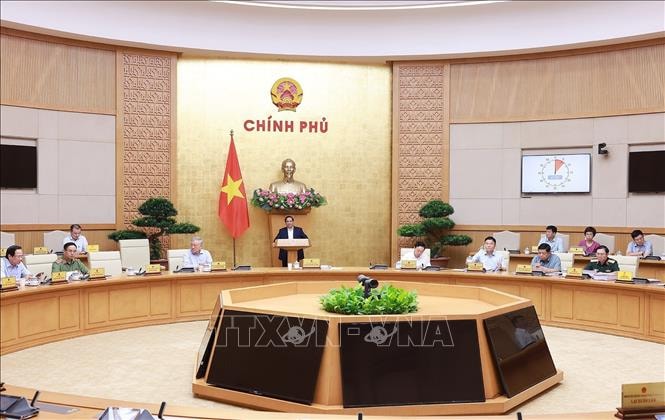On September 4, Prime Minister Pham Minh Chinh chaired the August 2025 Government Meeting on Law Building to review and provide feedback on 15 draft laws and 1 policy dossier for a draft law.
Attending the meeting were members of the Politburo, members of the Party Central Committee, Deputy Prime Ministers, Deputy Secretary of the Government Party Committee; Ministers, heads of ministerial-level agencies, and government agencies; leaders of ministries, ministerial-level agencies, and government agencies.
According to the agenda, under the direction of the Deputy Prime Ministers in charge of relevant fields, Government members will discuss and provide feedback on: the Draft Law Amending and Supplementing Certain Articles of the Land Law; the Draft Law Amending and Supplementing Certain Articles of the Geology and Minerals Law; the Draft Law on Judicial Assessment (replacement); the Draft Law on Disease Prevention; the Draft Law on Population (amended); the Draft Law on Deposit Insurance (amended); the Draft Law on Thrift and Anti-Waste; the Draft Law on Cybersecurity; the Draft Law on Planning (amended); the Draft Law on Digital Transformation; the Draft Law Amending and Supplementing Certain Articles of the Technology Transfer Law; the Draft Law Amending and Supplementing Certain Articles of the Intellectual Property Law; the Draft Law Amending and Supplementing Certain Articles of the Law on International Treaties; the Draft Law on Journalism (amended); the Draft Law on Personal Income Tax; and the Policy Dossier for the Draft Law on Tax Administration (amended).
Speaking at the meeting, Prime Minister Pham Minh Chinh emphasized that building and perfecting institutions is one of the three strategic breakthroughs; from the beginning of the term, the Party, State, and Government have paid great attention, focused on leadership, direction, and implemented decisively, synchronously, and effectively the building and enforcement of laws, achieving many important results, contributing to the general achievements of the country. However, institutions remain the “bottleneck of bottlenecks,” so it is necessary to change the situation, shift the state, and turn institutions into a national competitive advantage.






